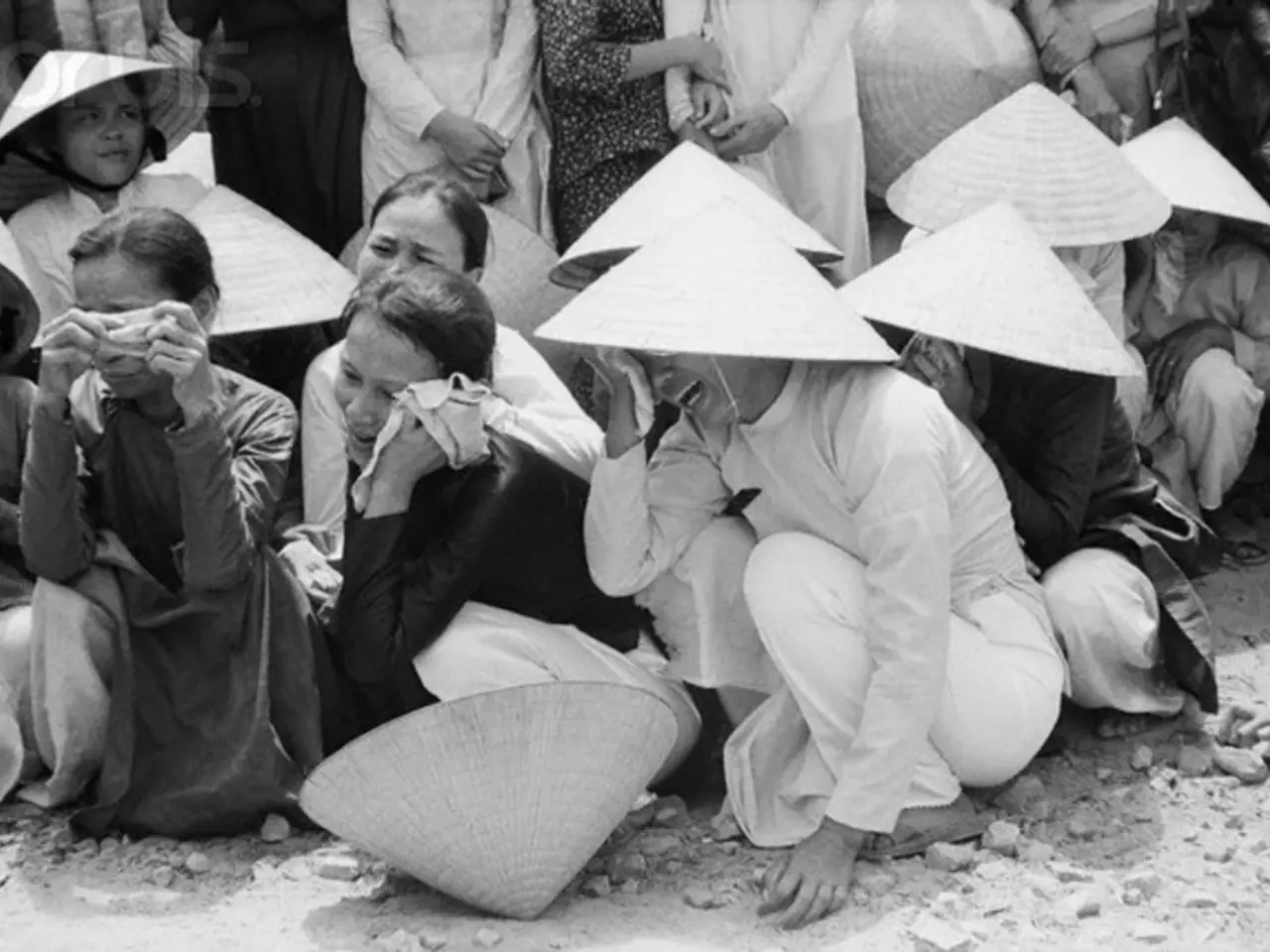Emotional Bereavement: The Undisclosed Psychological Effect of Heritage Loss
In today's interconnected world, cultural mourning has emerged as a significant phenomenon, affecting communities across the globe. This collective grief arises from disruptions that shake cultural identities and social bonds, including migration, urbanization, globalization, post-colonial systems, and environmental destruction.
Migration and urbanization uproot individuals from their native communities and longstanding social networks, resulting in identity disruption and difficulties in cultural reintegration. This can cause feelings of loneliness, alienation, and loss of cultural continuity, intensifying grief beyond personal loss.
Globalization imposes homogenizing cultural influences that can erode local traditions, languages, and rituals related to mourning. This undermines culturally specific grief practices, making communal healing more difficult and sometimes producing a sense of cultural bereavement or mourning for lost ways of life.
Post-colonial systems have historically disrupted indigenous social orders and cultural expressions through economic exploitation, political domination, and cultural suppression. This colonial legacy results in intergenerational grief linked to loss of sovereignty, cultural identity, and economic autonomy, compounded by systemic inequalities that continue to disadvantage formerly colonized peoples.
Environmental destruction—such as deforestation, pollution, and climate change—displaces communities and destroys landscapes deeply tied to cultural identity and spiritual practices. This leads to "ecological grief," a collective mourning for lost environments and ways of life embedded in those places, further exacerbating psychological distress and social fragmentation.
The effects of cultural mourning are far-reaching. Identity disruption, social fragmentation and loneliness, difficulty with reintegration and future planning, emotional and psychological pain—these are just some of the challenges faced by communities grappling with cultural loss. However, cultural mourning can also signify resistance and resilience, potentially leading to revitalization movements that reclaim and reinterpret traditions in response to historical and ongoing disruption.
Everyone can sense the loss of cultural depth or continuity, making cultural mourning not just for the oppressed. Grief in the context of cultural mourning takes many forms, including guilt for not feeling 'cultural enough' and anger at the forces behind the erasure. Community spaces, both physical and digital, are essential for promoting psychological health during times of cultural mourning.
Cultural mourning extends to the loss of collective identity and tradition, differing from personal grief. Dominant-culture individuals can also experience cultural mourning, although it may manifest differently. Cultural mourning is not always a negative experience, as it can initiate renewal, resistance, and even creativity.
In conclusion, cultural mourning is a complex and profound response to socio-historical disruptions. It is a collective grief that demands attention and action, not just from the communities directly affected, but from everyone who values cultural diversity and continuity. By understanding and addressing cultural mourning, we can work towards fostering a more inclusive, resilient, and culturally rich world.
[1] Smith, A. (2012). The Souls of Black Folk. Dover Publications. [2] Nandy, A. (1983). The Intimate Enemy: Loss and Recovery of Self Under Colonialism. Oxford University Press. [3] Kirmayer, L. J., & Singer, J. L. (1998). Cultural psychiatry: a review of the literature. The Lancet, 352(9132), 863-868. [4] Vizenor, G. (1994). Manifest Manners: Narratives on Postindian Survivance. University of Minnesota Press. [5] Kleinman, A., & Good, B. (1985). Culture, illness, and care: an introduction. University of California Press.
Read also:
- Subsidies worth nearly a million euros for sports facilities in Bremen: funds allocated for sports halls, entrances, and changing rooms in local clubs
- Stealthy Transformations Imperative for Investors and Job Seekers Under OBBB: Five Unnoticed Adjustments
- Portable Solar Power Bank 2 Pro by Anker: Balcony Energy Station with Built-in Storage and Complimentary Delivery
- Engaging Activities You Can Access with Your Queens Public Library Card at No Cost





